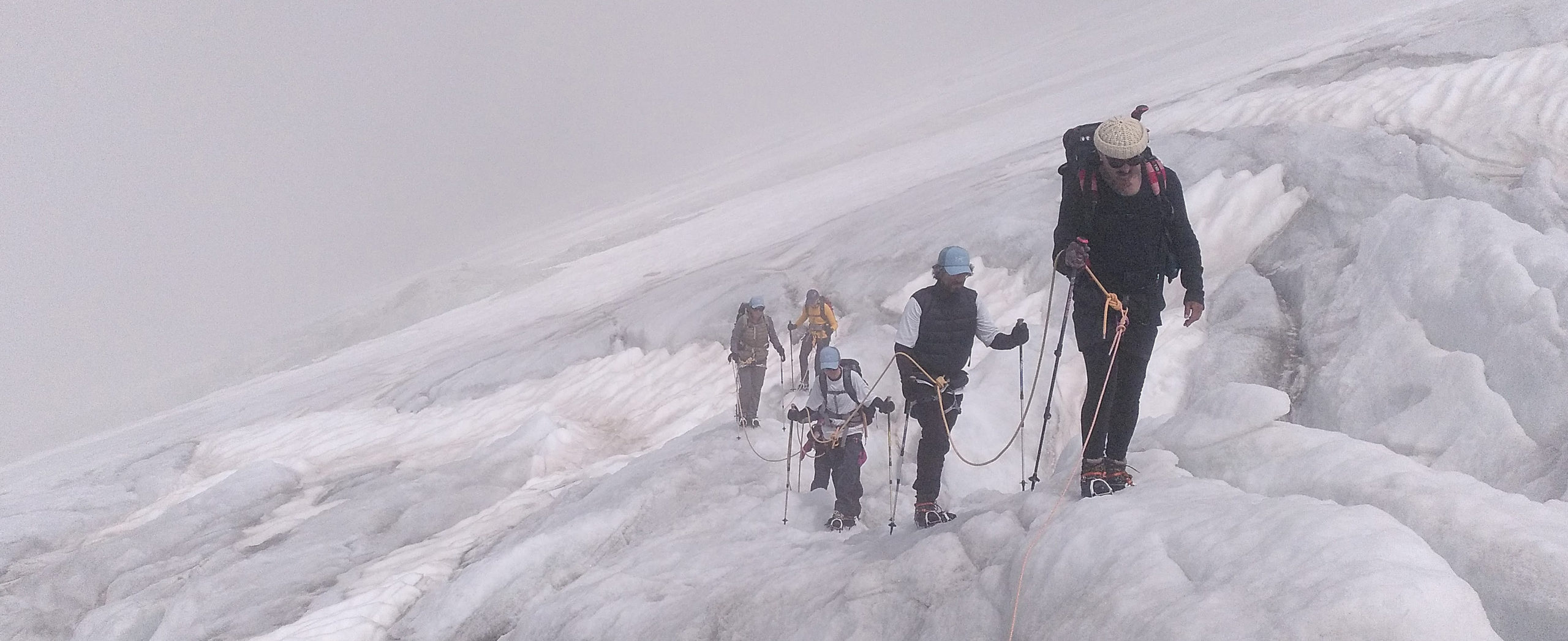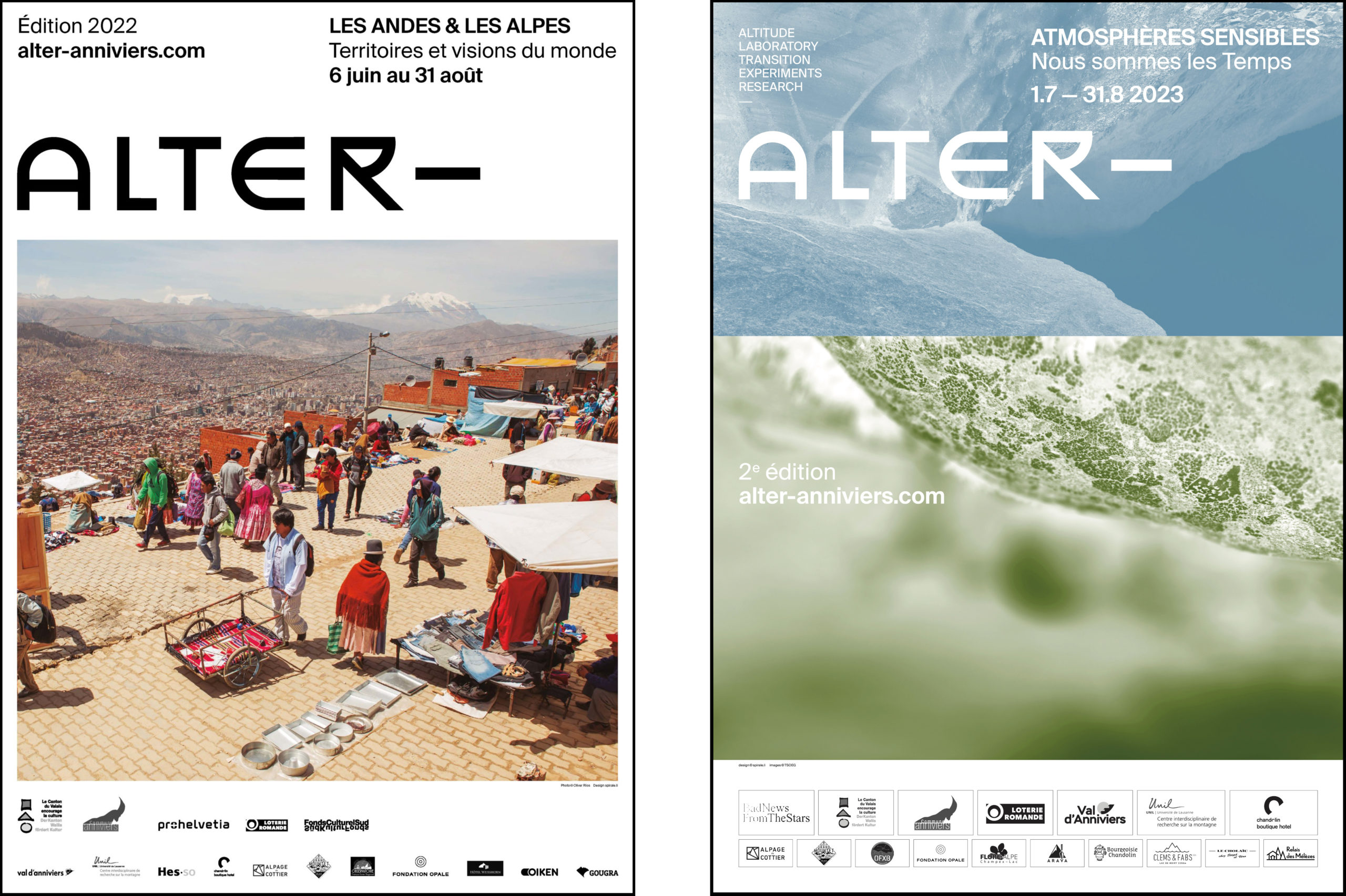ABOUT

ALTER-
Altitude Laboratory
Transition Experiments
Research
ALTER-, a collaboration among artists, researchers and local inhabitants that responds to environmental crises in high-mountain communities, is an annual program that takes place during summer in the Val d’Anniviers in Valais, Switzerland.
ALTER- invites a group of artists and researchers (a group of 3 to 5 people already constituted) from another mountain region of the world to settle down for three months in Chandolin (2000m. of altitude) and to listen to and enter into dialogue with the Val d’Anniviers and its inhabitants. The objective is the active sharing of challenges, knowledge and possible solutions for the period of transitions – cultural, climatic, energetic, economic, social – that all high mountain regions are going through simultaneously.
ALTER- encourages this cooperation by supporting three types of activities developed in parallel during the summer:
- The Lab: observations and research in the field by artists and researchers
- The Transmissions: common activities between the artists in residence and the inhabitants of the valley
- The Events: regular sharing of the project’s progress with the public, in partnership with Swiss scientists and artists

Edition 2022 : THE ANDES & THE ALPS
Territories and Worldviews: Spiritual and energetic transformations in mountain regions
For its very first edition, from June to August 2022, ALTER- facilitated exchange and collaboration between a collective of five artists and researchers from Bolivia (Group Sonandes), inhabitants and communities from Val d’Anniviers, researchers from CIRM-University of Lausanne, HES-SO Valais, and Swiss guest artists.
Edition 2023 : SENSITIVE ATMOSPHERES
We are the Weathers: Cultural, climatic, energetic, economic, and social transitions in high mountain regions
The second summer of ALTER- brought together five artists and researchers from network TSOEG – Temporal School of Experimental Geography, inhabitants and communities from Val d’Anniviers, and researchers from CIRM-University of Lausanne.
